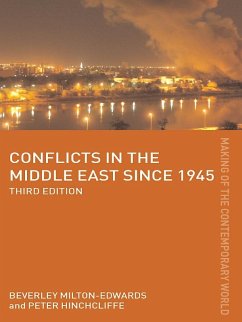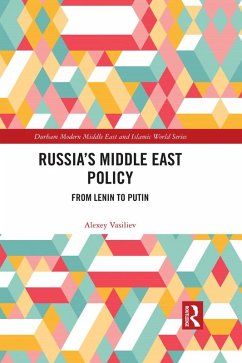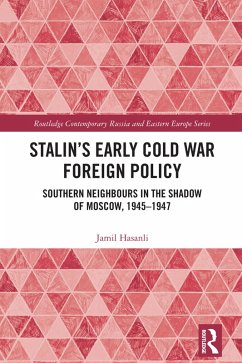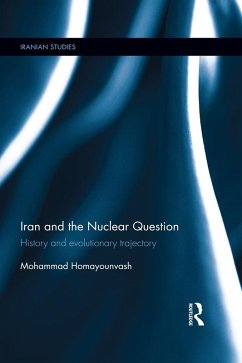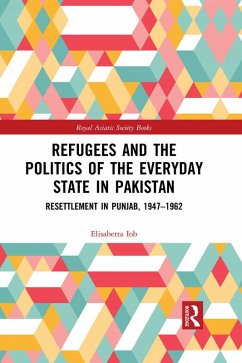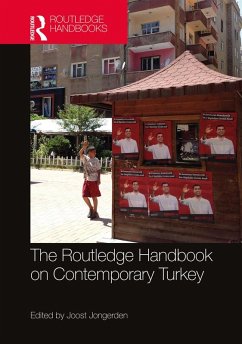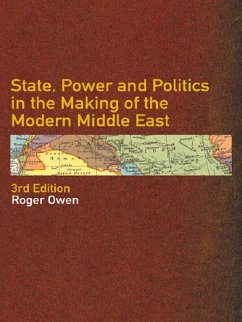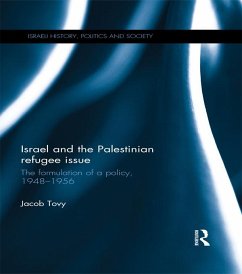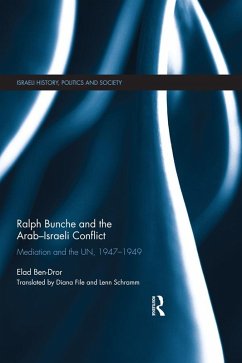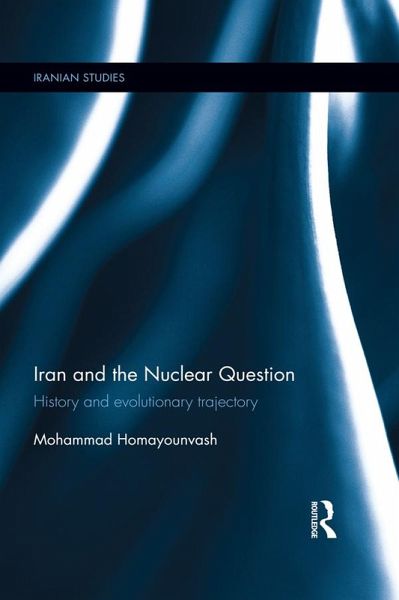
Iran and the Nuclear Question (eBook, PDF)
History and Evolutionary Trajectory
Versandkostenfrei!
Sofort per Download lieferbar
43,95 €
inkl. MwSt.
Weitere Ausgaben:

PAYBACK Punkte
22 °P sammeln!
Spanning over a period of more than five decades since its inception, Iran's nuclear programme is the most protracted civilian nuclear program in the world and one of the most politicized projects in Iran's history.'Iran and the Nuclear Question' offers a historiographical portrait of Iran's early nuclear program under Mohammad Reza Shah Pahlavi. Using declassified archival material, the book thematically chronicles the program's genesis, evolutionary trajectory, and devolution from the 1950s through to the 1970s. It also catalogues the Revolutionary Iran's early socialization into the atom an...
Spanning over a period of more than five decades since its inception, Iran's nuclear programme is the most protracted civilian nuclear program in the world and one of the most politicized projects in Iran's history.
'Iran and the Nuclear Question' offers a historiographical portrait of Iran's early nuclear program under Mohammad Reza Shah Pahlavi. Using declassified archival material, the book thematically chronicles the program's genesis, evolutionary trajectory, and devolution from the 1950s through to the 1970s. It also catalogues the Revolutionary Iran's early socialization into the atom and the Islamic Republic's gradual change of heart about nuclear energy that culminated in the incremental resuscitation of the Shah's nuclear enterprise in the 1980s.
As the first archive-based account of one of the most long-lasting and capital-intensive nuclear enterprises during the Cold War, 'Iran and the Nuclear Question' is a valuable resource for students and scholars of Iranian, Middle East and Security Studies. Written in a clear and accessible format, it will also appeal to those with a more general interest in Iran and its nuclear journey.
'Iran and the Nuclear Question' offers a historiographical portrait of Iran's early nuclear program under Mohammad Reza Shah Pahlavi. Using declassified archival material, the book thematically chronicles the program's genesis, evolutionary trajectory, and devolution from the 1950s through to the 1970s. It also catalogues the Revolutionary Iran's early socialization into the atom and the Islamic Republic's gradual change of heart about nuclear energy that culminated in the incremental resuscitation of the Shah's nuclear enterprise in the 1980s.
As the first archive-based account of one of the most long-lasting and capital-intensive nuclear enterprises during the Cold War, 'Iran and the Nuclear Question' is a valuable resource for students and scholars of Iranian, Middle East and Security Studies. Written in a clear and accessible format, it will also appeal to those with a more general interest in Iran and its nuclear journey.
Dieser Download kann aus rechtlichen Gründen nur mit Rechnungsadresse in A, B, BG, CY, CZ, D, DK, EW, E, FIN, F, GR, HR, H, IRL, I, LT, L, LR, M, NL, PL, P, R, S, SLO, SK ausgeliefert werden.




